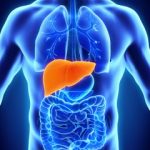 The liver is an important organ that plays a crucial role in our digestion. It receives blood from our digestive tract and filters it. Consequently, it is responsible for detoxifying our body and metabolizing medicine. It is important to have a healthy liver and understand whether our liver is developing any problems that would need our attention so that we can get timely help. This week, we featured articles to spread awareness on topics such as:
The liver is an important organ that plays a crucial role in our digestion. It receives blood from our digestive tract and filters it. Consequently, it is responsible for detoxifying our body and metabolizing medicine. It is important to have a healthy liver and understand whether our liver is developing any problems that would need our attention so that we can get timely help. This week, we featured articles to spread awareness on topics such as:
- Cirrhosis of the liver life expectancy
- Elevated liver enzymes
- Fatty liver disease and a fatty liver diet to overcome it
- Liver pain causes and
- Hepatic cysts
Cirrhosis of the liver: Life expectancy and stages
This article will lay out the stages of liver cirrhosis, as well as cirrhosis of the liver life expectancy. But first, what is liver cirrhosis? Cirrhosis of the liver is a specific condition that occurs when healthy liver cells are slowly replaced by scar tissue. As a progressive disease, cirrhosis of the liver can take many years to develop. Liver cirrhosis is common in alcoholics and patients suffering from hepatitis B.
What are the stages of cirrhosis of the liver?
Advertisement
There are four different stages of cirrhosis of the liver, as follows.
Stage 1
The first stage is extremely mild. In this stage, it is often difficult to detect any damage to the liver despite the presence of severe liver damage. In stage 1 liver cirrhosis, patients often suffer from fatigue and extreme lack of energy. The liver presents as inflamed, and because of the inflammation, it will work to heal itself, causing more swelling.
In this stage, not enough scar tissue has been developed to show the clinical sign of liver cirrhosis. At this point in its progression, cirrhosis of the liver is still reversible and normal liver function can be recovered.
Continue reading…
 Elevated liver enzymes: Causes, symptoms, and treatment
Elevated liver enzymes: Causes, symptoms, and treatment
Our liver is an important organ that is responsible for many functions in the body. When it becomes damaged, we feel ill, but symptoms may often be confused with other illnesses.
Elevated liver enzymes may indicate a problem with the liver. When the liver is inflamed, it releases more chemicals than normal, which can be seen in a blood test.
You can lower elevated liver enzymes naturally, but first, let’s examine elevated liver enzymes and what they mean for your health.
Common liver enzymes are alanine transaminase (ALT) and aspartate transaminase (AST). Normal levels of ALT should be five to 40 units per liter of serum. Normal levels of AST are seven to 56 units per liter of serum. These enzymes are biomarkers doctors use to determine the health of the liver. The doctors use a blood panel to measure the levels.
Causes and symptoms of high liver enzymes
Non-alcoholic fatty liver disease (NAFLD)
Considered the most common reason for a person to develop elevated liver enzymes as found on a blood test. Continue reading…
 Simple diet plan to overcome fatty liver disease: Foods to eat and avoid
Simple diet plan to overcome fatty liver disease: Foods to eat and avoid
Fatty liver is just what it sounds like: a build-up of fat in the liver. The medical term for fatty liver is steatosis. While a small quantity of fat is considered normal, if more than five to ten percent of your liver’s weight is attributed to fat, you have fatty liver.
The liver is a vital organ whose job is to filter all harmful substances from the blood. Conditions such as a fatty liver can inhibit this process.
Fatty liver is reversible if you make lifestyle and behavioral changes. In the early stages, this condition presents with no symptoms and does not result in permanent damage. However, when repeated damage occurs to the liver, permanent scarring can take the place of normal liver cells. This is called liver cirrhosis.
Foods to eat for fatty liver-reducing diet
The following types of food can help reduce the risk of fatty liver and promote liver healing.
Protein: This is considered an essential component of every diet. However, when most people think of protein, they think of red meat. Continue reading…
 What causes liver pain?
What causes liver pain?
Determining what causes liver pain can be difficult, considering that the brain perceives abdominal pain from many organs in what experts call an “ill-defined” way. Still, advances in medicine have helped the medical community come to a better understanding of what causes pain in the liver area.
Research tells us that the liver’s pain receptors are located on the organ’s surface, and the pressure a person feels when they experience liver pain is likely from a capsule that covers the organ. The pain is usually felt in the upper right part of the abdomen. Often, people who experience discomfort complain about pain right under their rib cage. No matter what the causes of pain in the liver might be, the condition typically involves swelling, inflammation, or enlargement of the liver. Injury can lead to liver pain, but some causes of liver pain can be linked to various disorders.
People often confuse liver pain with other abdominal pain, but again, actual liver pain is signified by discomfort in the upper right abdomen. There are still some situations where right upper quadrant pain is caused by gallstones or pancreatitis. It is important to see a doctor to get a proper assessment. Continue reading…
 Liver or hepatic cysts: Causes, symptoms, and natural treatments
Liver or hepatic cysts: Causes, symptoms, and natural treatments
Liver cysts or hepatic cysts are relatively common and can be simple or the sign of a more serious health condition. The thin-walled sac filled with air, fluid, or semi-solid material on the liver can include various symptoms depending on the cause.
Advertisement
It is not unusual for a person to get one or two liver cysts or hepatic cysts that require little medical attention. However, there are cases where numerous cysts grow rather large and need to be addressed with the help of a medical professional. An ultrasound or CT scan detects most liver cysts when a person is undergoing them for other reasons. For the most part, liver cysts are benign and do not affect the function of the liver.
Can hepatic cysts cause abdominal pain?
It is only natural for people to wonder if hepatic cysts cause pain. Many people do not even realize when they have one small liver cyst, so usually, there are no signs or symptoms. When the cyst is large though, it could cause pain and discomfort. The pain is usually in the upper-right part of the abdomen. Sometimes these cysts need to be drained or removed. Continue reading…
The articles this week not only tell us about different liver problems, but also ways in which we can get relief through home remedies or a change in diet. These are particularly helpful in cases of liver cysts, fatty liver disease, and elevated liver enzymes.
